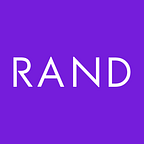Is Genomic Data the New Oil of the Middle East?
The challenge for Middle Eastern states will be to translate their skill in gathering genomic data into skills to analyze it.
By Sarah L. Gebauer and Jeffrey Lee
Clive Humby, the British mathematician and entrepreneur, described data as “the new oil” almost 20 years ago, but the speed at which the Gulf States are creating biological datasets underscores its value to these historically oil-focused countries.
A few countries like England began to collect genomic data a decade ago and integrate it with their national health data, but others like Saudi Arabia, Qatar, and the UAE are now following its lead and rushing to develop genomic databases with associated health data.
The speed at which the Gulf States are creating biological datasets underscores its value to these historically oil-focused countries.
In the past few years, these countries have created genomic registry programs with the potential to provide incredibly accurate and thorough datasets that are unique to the region and could contribute to increased global genomic data diversity:
- Saudi Arabia’s genome programs have so far sequenced over 60,000 samples
- The Emirati Genome program has collected 500,000 samples
- The Qatar Genome Program has sequenced 35,000 full genomes
These countries have public health incentives to develop these databases due to a high degree of relationships among relatives. Eight percent of babies born in Saudi Arabia are diagnosed with genetic defects and Saudi Arabia, UAE, and are ranked 2nd, 6th, and 16th. Genomic data may help these countries prevent, diagnose, or treat these disorders more effectively.
This information is particularly valuable because over 90 percent of genomic data is from European countries, meaning that many of the insights related to genomic differences may not apply to people with Middle Eastern ancestry. The combination of a high rate of relatively uncommon genetic disorders and a lack representative datasets has prompted Qatar to seek to develop a pan-Arab microarray, which could promote precision medicine and public health insights in the region.
These efforts contribute to the countries’ broader programs to diversify their economies away from oil dependence and enhance biotechnology as well as AI infrastructure. In January of 2024, Saudi Arabia announced its National Biotechnology Strategy that aims to make Saudi Arabia a biotechnology leader in the MENA region by 2030 and a global biotechnology hub by 2040. Within this plan, Saudi Arabia is prioritizing four strategic directions — vaccines, biomanufacturing, genomics, and plant optimization — and catalyzing the creation of 11,000 jobs by 2030. A report from Strategy & Middle East stated that in 2021 Saudi Arabia put $3.9 billion towards research and development, including its biotechnology sector.
The challenge for the Gulf States will be to translate their skill in gathering data into skills to analyze it to create value.
The UAE has also been actively developing its biotechnology sector as part of its National Programme to Transform Technology, which “ aims to increase R&D investment in the country’s science and tech sectors to 1.5 percent of GDP by 2031. Dubai Science Park has attracted over 400 companies including Merck, Amgen, and Pfizer with tax advantages and other benefits. Similarly, Qatar has invested $5.5 billion in biotechnology, with heavy investment in personalized medicine and genomics companies. It also offers tax and investment incentives to foreign firms. Domestically, Qatar has established the Qatar Science and Technology Park that has drawn academic institutions like Carnegie Mellon, Cornell Medicine, and HEC Paris by offering innovation programs, laboratory spaces, networking, and collaboration opportunities.
Humby said both oil and data “cannot really be used” unless they are refined; the challenge for the Gulf States will be to translate their skill in gathering data into skills to analyze it to create value. The success of these countries in creating profits from data could help them develop beneficial partnerships and grow their local capabilities in biotechnology and AI.
This originally appeared on rand.org on July 22, 2024.
